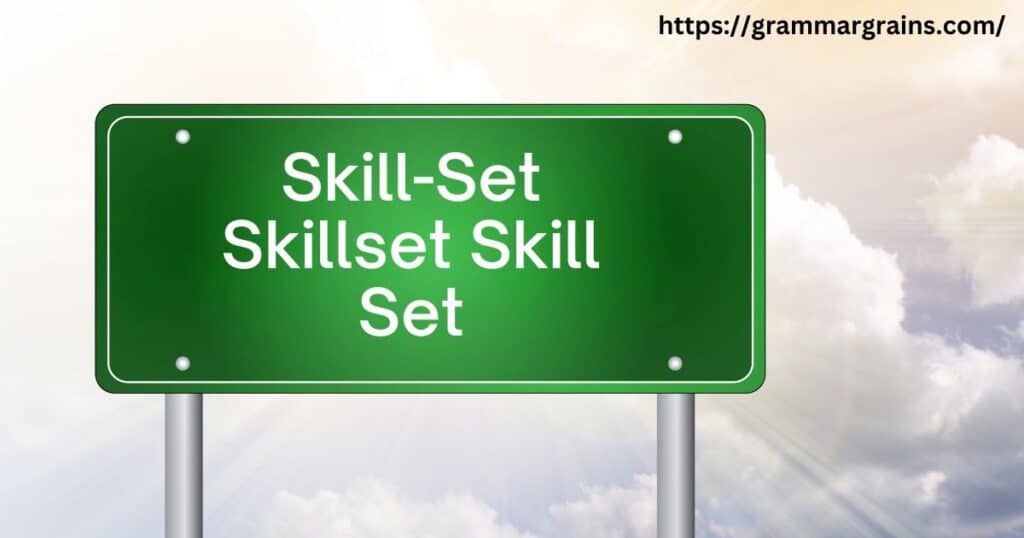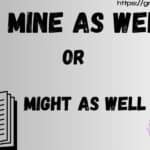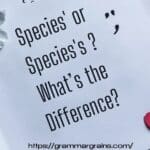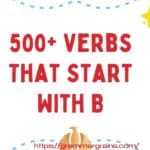Language reflects how societies evolve, and terms like “Skill-Set,” “Skillset,” or “Skill Set” demonstrate these changes.
These terms appear often in professional writing, digital content, and even casual communication.
However, choosing the correct version can be tricky, especially when crafting resumes, job descriptions, or academic papers.
Why Is There Confusion Around These Terms?
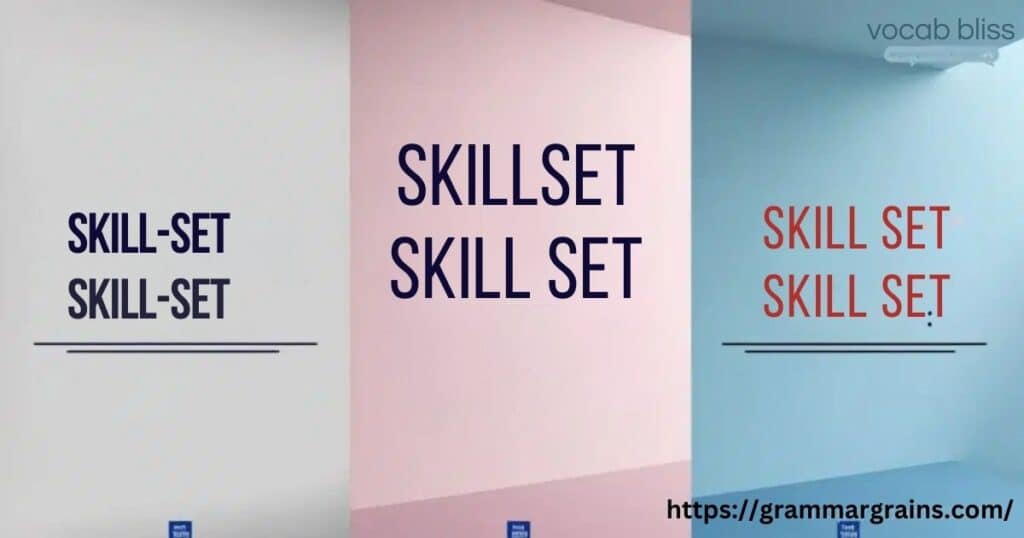
Confusion surrounding skill set, skillset, and skill-set arises because compound nouns evolve based on language trends.
Historically, “skill set” was the standard.
Over time, writers started using “skillset” for simplicity.
Adding to this complexity, “skill-set” briefly bridged the gap before falling out of favor.
These shifts in language use have led to misunderstandings about which form is correct.
Regional preferences deepen the confusion.
In American English, “skill set” dominates in formal contexts like resumes, while “skillset” appears in blogs and casual writing. In contrast, British English largely sticks to “skill set” in all contexts. This divergence means writers must understand their audience before making a choice. Moreover, some style guides fail to clarify these nuances, leaving writers to rely on inconsistent sources.
Choosing the Right Term
Choosing the correct term depends on your writing’s purpose and audience.
For formal documents like resumes or academic papers, “skill set” remains the gold standard.
Its use conveys professionalism and aligns with widely accepted grammar rules.
On the other hand, “skillset” has gained traction in digital content, where brevity appeals to casual readers.
Avoid using “skill-set,” as it has become outdated and may confuse readers unfamiliar with its history.
Writers often misuse these terms interchangeably, creating inconsistency in their work.
By sticking to either “skill set” or “skillset,” based on the audience and medium, you can ensure your writing feels intentional and clear.
Contextual Usage and Recommendations
| Term | Ideal Context | Example |
|---|---|---|
| Skill Set | Resumes, academic writing | “She listed her skill set in the interview.” |
| Skillset | Blogs, informal content | “Learn to grow your skillset quickly online.” |
| Skill-Set | Rare, historical contexts | “This skill-set was critical in the 1960s.” |
Definitions and Origins
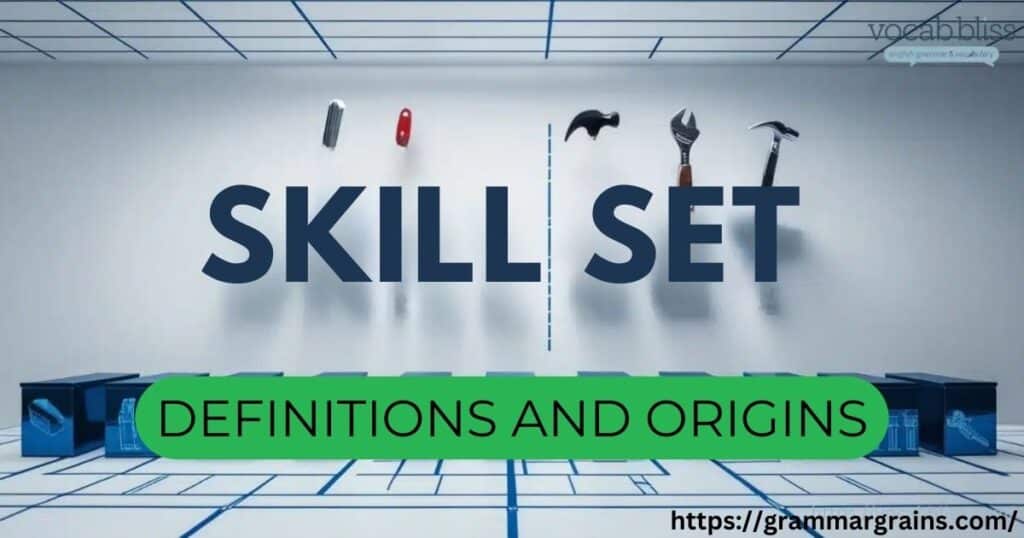
What is a Skill Set?
A skill set is a group of related abilities essential for performing specific tasks.
For example, an engineer’s skill set might include technical proficiency, problem-solving, and project management.
This term functions as an open compound noun, which emphasizes its two components: skill, meaning an ability, and set, meaning a collection.
This format makes the term clear and professional.
The concept of “skill set” first emerged in structured corporate environments.
It gained popularity in the 20th century, especially in job postings and formal documents.
Major dictionaries, including Merriam-Webster, define “skill set” as the correct form for describing professional qualifications.
Its continued relevance shows how clarity matters in formal communication.
What is a Skillset?
A skillset has the same meaning but uses a closed compound noun format. This variation became popular in informal contexts, particularly in blogs, online courses, and SEO-driven content. Many readers find “skillset” easier to read due to its streamlined structure. For instance, a blog might write, “Build your skillset to stay competitive in the job market.”
The rise of digital content explains why “skillset” appeals to modern audiences.
Its concise format works well in titles, headlines, and character-limited platforms.
However, it’s less formal than “skill set,” making it unsuitable for resumes or academic papers.
Writers should consider the tone of their work before opting for this version.
Historical Usage and Trends
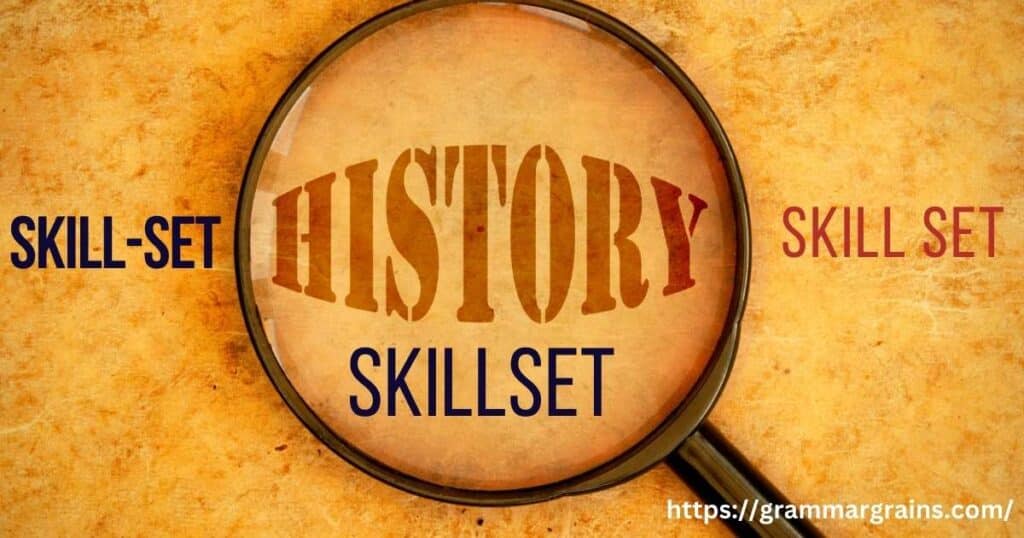
The Evolution of Skill Set
The term “skill set” emerged during the industrial era, reflecting the need for structured job qualifications.
Employers began specifying required skill sets for roles, such as technical abilities for engineers or interpersonal skills for managers.
By the 1980s, the term had solidified its place in professional writing and corporate documents.
However, as digital communication became widespread in the 2000s, “skillset” began to gain traction.
This shorter form suited the fast-paced nature of blogs, social media, and online articles.
Its rise demonstrates how language trends adapt to meet changing needs.
Despite this shift, “skill set” remains the preferred term in formal settings, underscoring its historical significance.
Regional Differences and Modern Preferences
Regional differences further complicate the usage of these terms.
In the United States, both “skill set” and “skillset” are common, but their applications differ.
Meanwhile, British English prefers “skill set” exclusively, maintaining a more traditional approach.
Interestingly, countries like New South Wales follow a similar trend, favoring “skill set” for formal use.
Modern data supports these trends.
Google Trends shows that “skill set” leads in search popularity, particularly for professional queries like resumes and job postings. However, “skillset” has carved out a niche in informal, digital spaces, reflecting the changing preferences of younger audiences and content creators.
Grammar and Style
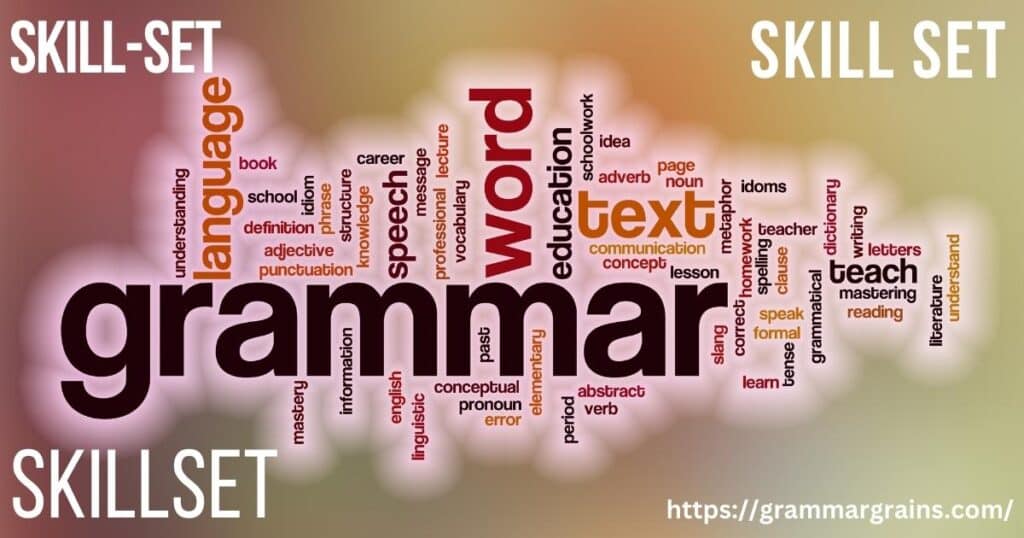
Singular vs. Plural Usage
Understanding the singular and plural forms of these terms ensures grammatical accuracy.
Use “skill set” in singular form when describing one person’s qualifications:
“His skill set includes programming and communication.”
For multiple collections, use “skill sets”:
“Different industries require diverse skill sets to thrive.”
Style Guide Recommendations
Most style guides, such as the Chicago Manual of Style, recommend using “skill set” in formal communication.
They argue that this version provides greater clarity and avoids ambiguity.
Writers should reserve “skillset” for informal contexts, ensuring that the tone matches the audience’s expectations.
Usage in Contexts

Professional vs. Informal Writing
In professional contexts like resumes, academic papers, and cover letters, “skill set” remains the standard.
It conveys a level of formality and professionalism that aligns with modern dictionaries.
For example:
“Her skill set demonstrates expertise in project management.”
On the other hand, “skillset” thrives in blogs, social media posts, and casual communication.
Its brevity makes it ideal for engaging readers in informal settings:
“Learn how to expand your skillset with these tips.”
Examples in Professional Use
| Context | Preferred Term | Example |
|---|---|---|
| Academic Writing | Skill Set | “This study highlights the skill set required for effective teaching.” |
| Resumes | Skill Set | “Proficient in communication and technical skill set.” |
| Informal Blogs | Skillset | “Enhance your skillset with free courses.” |
Conclusion
The debate over “Skill-Set,” “Skillset,” or “Skill Set” highlights the dynamic nature of language. For formal writing, “skill set” remains the gold standard. It adheres to grammar rules and suits professional settings like resumes and academic documents. For casual or digital content, “skillset” offers a concise and modern alternative. Avoid using “skill-set,” as it’s now considered outdated and unnecessary.
By understanding these terms and their contexts, you can elevate your writing’s clarity and effectiveness. Whether crafting a resume, a blog post, or a job description, choose the term that best fits the purpose and audience. Language adapts, and so should your approach to communication.
FAQs
Why does “skillset” look modern compared to “skill set”?
Because “skillset” is concise and suits digital trends.
Is “skill-set” grammatically incorrect?
No, but it’s outdated and rarely used.
Can I use “skill set” and “skillset” interchangeably?
Yes, but context matters—formal vs. informal.
How does “skillset” impact SEO in content?
It aligns with brevity, making content more reader-friendly.
What does the evolution of these terms reveal?
It shows how language adapts to modern communication needs.

Taila Lucy, an expert content writer at Grammar Grains, brings 4 years of experience crafting engaging pieces on grammar. Her work delves into synonyms, antonyms, slang, puns, and poetry, helping readers master English with creativity and flair.
